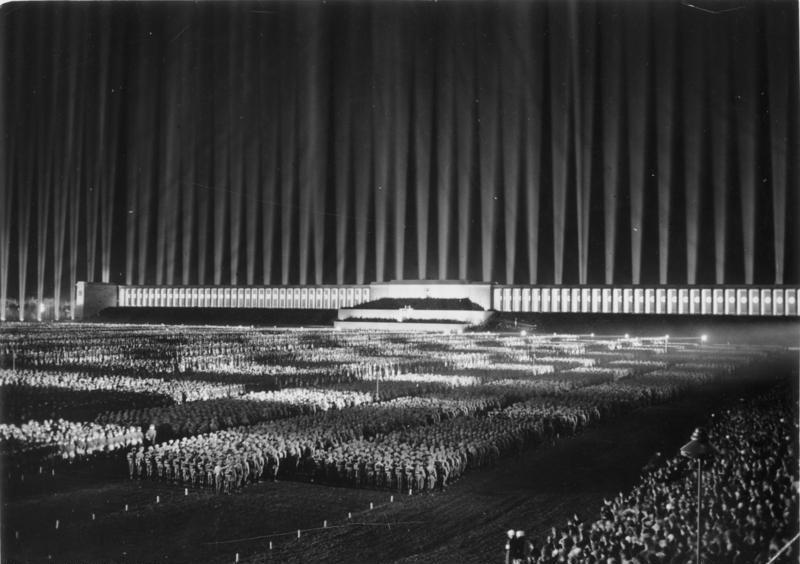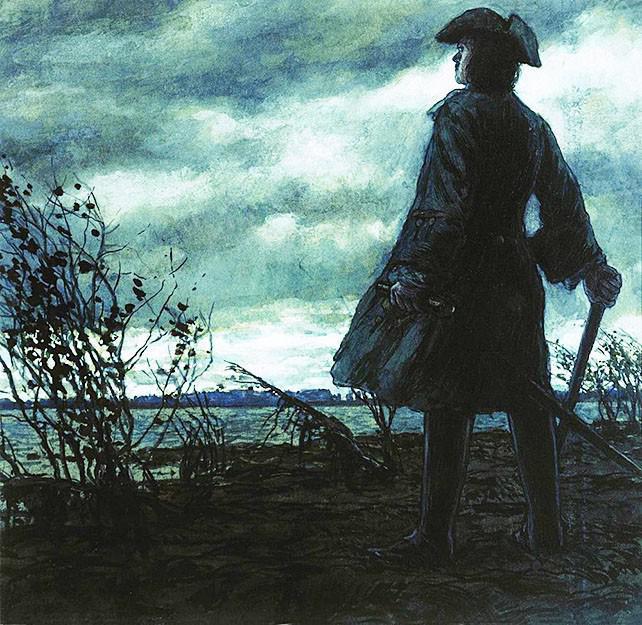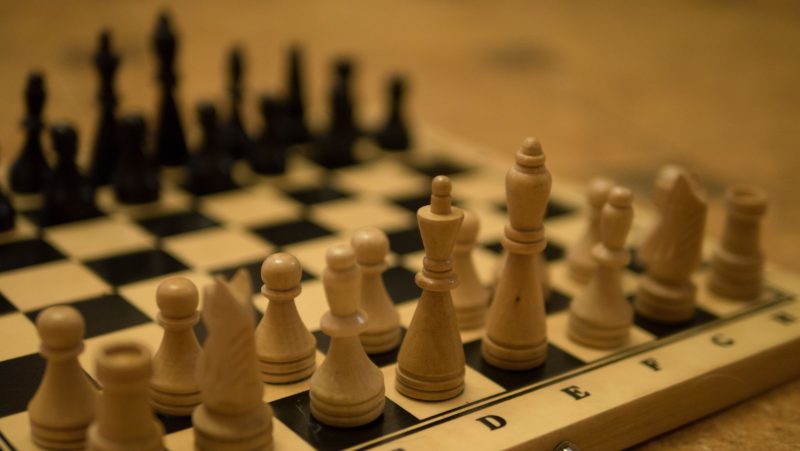Thesis #13.
Transitioning from metaphors to analytical statements, it is necessary to recognize, first of all, that over the years of his presidency, Putin has always viewed China very differently from Yeltsin.
This was easy to see. Albeit, Yeltsin also wanted to be friends with China. He also approached China with wonder. But ever since 2000, Putin’s approach was cold and prudent. It was as though Putin contemplated the possibility of drifting in the direction of friendship with China. Let me stress that he began to contemplate this possibility not in 2014; he contemplated it from the very beginning.
However, this contemplation and that which I referred to above as “conversing with the bird of doubt” was a microscopic addition to the ambitious patriotic variant of merging Russia with the West which Putin had been executing by bringing Russia into certain condition, by building the “power vertical”, by introducing a certain format of market institutions, by creating a certain elite, by strengthening the quasi-elite and weakening the anti-elite components within the consensus of merging, and so on.
Putin never executed any overt strategic anti-merging projects. The country continued to remain “Mergerland”. Society continued to be built from a material called “mergerin”.
Naturally, everything that resulted as a consequence was guaranteed. For example, the presence of Chubais [a leading Yeltsin-era reformer responsible, among other things, for an abrupt lifting of price controls on everyday goods and a privatization scheme that heavily favored the mafia as well as former Party and Komsomol officials – translator’s note]. Yes, he is a representative of the anti-elite, but a necessary one. Broadly speaking, if our work is directed at the merger project, then anti-elite can only be reined in, its appetites can only be limited, but it is still necessary for bringing these plans into life.
Thesis #14.
The hope for an ambitious patriotic merger of Russia with the West reached its peak in 2001, after radical Islamism attacked the Twin Towers, and the United States proclaimed a crusade against this very Islamism.
It seemed natural that Russia would simply be indispensable to the US and the West as a responsible and fully legitimate ally for this crusade. The Russian “merger elite” was absolutely ready for such an alliance. There wasn’t even a shadow of a concern that this could dangerously destabilize the Islamic population in Russia. This coveted full-value ambitious patriotic merger with the West appeared within reach. Even if under American leadership! This, of course, was not quite what was desired, but it was perceived as a fortunate opportunity, as a dream coming true.
Thesis #15.
The dream began to crumble by 2003.
It became clear that there would be no crusade, and that Russia will not be accepted as an ally for this crusade. Russia could be accepted, but only in a secondary role and without any sort of full-value merger with the West. The elite euphoria resulting from “the hope of 2001”, gave way to a dreary melancholy by 2003.
Thesis #16.
In 2005, the West, through its authorized representatives, confidentially made it known that the West has rejected the ambitious patriotic variant of merging. The only variant of merging that the West would not reject requires the partitioning of Russia, the destruction of Russian nuclear weapons, and so on.
Since this was all muttered through teeth, since the significance of this Western position was not entirely understood, the goal of the ambitious patriotic merger was not canceled. The response was limited to increasing the ambitious patriotic component both in rhetoric and in action. It was unclear whether the topic of discussion was the old, mergerist ambition and mergerist patriotism, or whether it was something new. This is because for something new it is not enough to condemn the West. There are different kinds of condemnation. It is one thing to condemn and to continue counting on a merger, but to condemn whilst losing all hope for a full-value merger and not being ready to merge on inferior terms is completely different.
Thesis #17.
After 2005, an ideology of inferior merging, which touted this as a great benefit, began to be feverishly constructed.
It began to take form mostly in the so-called national-democra
Thesis #18.
After the West’s rejection of a full-value merger, a tacit split occurred within the ranks of the quasi-elite, part of which defected to the anti-elite camp.
In a situation where the dream of merging had been cultivated for at least decades, it is dreadfully difficult to reject this kind of dream. And, it is dreadfully shameful. Consequently, in a situation of the West’s rejection of a full-value merger, part of the elite proponents of a full-value merger (ambitious, patriotic, and so on) simply had to grab on to an inferior merger. What else were they to do? Were they to admit that they destroyed the great power, the USSR, for nothing, and now they are left with nothing?
Okay, you admit this, and what next? You have to reject “Mergerland” and build a new country? Of what sort? Based on what?
As split occurred within the “full-value merger elite”, part of which defected to the camp of the inferior merger elite, or to anti-elite camp. These defectors are flagged by the behavior of a representative group of persons, including Mr. Rakitov [a philosopher who had served as an adviser to Boris Yeltsin during his presidency, and who infamously claimed that modernizing Russia was impossible without changing out its “cultural nucleus” – translator’s note], whom I have discussed previously. Here, just as with Belkovsky, the person is not as important as is the so-called “background”.
Thesis #19.
It is very important to note that the clear ideological formatting of the split within the “full-value merger elite” into the part which became a counter-elite group because of the impossibility of such a merger and into the part which became an anti-elite group for the same reason, HAS NOT TAKEN PLACE TO THIS DAY.
The part of the “full-value merger elite” that defected to the anti-elite camp is hiding its defection from those with whom it was of a like mind yesterday.
The part of the “full-value merger elite” which recognized the impossibility of this merger in the new situation is not preoccupied with reformatting its worldview. It is feverishly acting in the way that is necessary to preserve Russia. But, this resembles the actions of a person who no longer understands where he is, what exactly he is doing, and what is the connection between one set of his actions and the rest of what he is doing.
This inarticulateness cannot be allowed to continue. With every passing day it becomes less clear who among yesterday’s proponents of a full-value merger with the West has not defected and is not planning to defect to the camp of the proponents of an inferior merger with the West. It is clear that one person has not defected and will no defect: Vladimir Putin. But as we have previously noted, he is not a representative of the elite in the full meaning of this word.
As for various elite characters who have discovered the impossibility of merging with the West at full-value, their loyalist statements (“We are with Putin”, “Putin is our everything”, and so on) are become less and less convincing. They will not become convincing until the standoff between the counter-elite and the anti-elite will finally take form. It will not be so until the representatives of the full-value merger elite will not put themselves into one of these camps not only de facto, but also on the level outlining their position ideologically, politically, and otherwise..
Thesis #20.
It is not enough to simply reject an inferior merger. It is necessary to clearly outline the new counter-elite positions, which now have no alternative. It is also necessary to start the political battle between the newly formatted counter-elite and the anti-elite, and to win this battle. It is necessary to do this by the end of 2015.
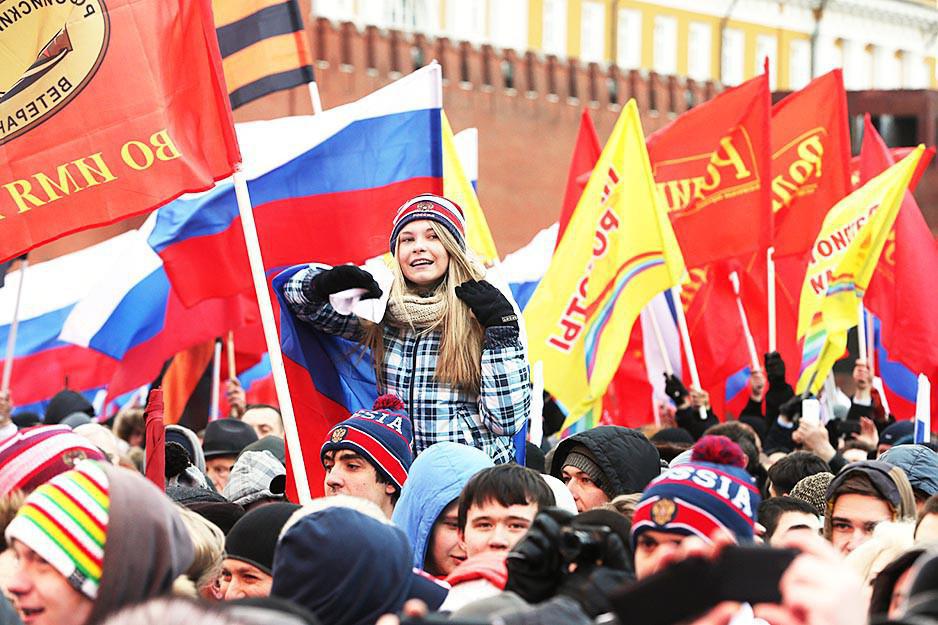
De facto, Putin has already crossed the Rubicon. But, he has not outlined this crossing ideologically. One cannot keep working on achieving a full-value merger between Russia and the West knowing that this merger is impossible. It is counterproductiv
Meanwhile, Putin continues to lead “Mergerland”, using tools forged for merging, and building a society out of mergerist sociopolitical materials. As one of the most careful Russian political leaders, Putin does not wish to explode the mergerist reality which has taken form over the recent decades. Moreover, judging by his actions and statements, he still does not understand a) what sort new country can be built, b) is it possible to start building it without causing the old country to fall apart (because if this country falls apart, there will be nothing to build), c) what will be the level of support for the rather uncomfortable construction of a new country, d) who exactly would build it.
The tragedy of Peter the Great was certainly that the passionate assertion of Russia’s greatness was combined in his mind with an absolute teleological and historiosophical uncertainty. Whilst fiercely reconstructing Russia following the European example, Peter never answered the question of what the purpose is of another great power structured in the same fashion as the other European powers. Is this power supposed to conquer Europe? Is it supposed to merge with it? Is it supposed to simply coexist with the great European neighbor, in always imitating it?
Peter and his successors used various means to avoid answering this pressing question. Strangely enough, Lenin was the one to answer it with moving the capital to Moscow and with his concept of Russia as the citadel of communism. It was Lenin who, without rejecting Russia’s modernization, managed to return that messianic spirit which was lost in the times of Peter and those who followed.
However, Peter and his successors were expanding the empire; and therefore, they had the right to avoid answering the question of why they were doing so. They were not presiding over the shrinking of the empire and its capitulation, which is what the breakup of the USSR represents for Putin and Putinists, who unequivocally called it a geopolitical catastrophe.
Peter’s defeat at Narva is nothing close to the defeat of the Soviet Union in the Cold War. This is why Putin finds everything having to do with the answer to the question of Russia’s purpose to be an especially sore subject. This is the same question as why talk now, after such a defeat, about a becoming a great power. To become a powerful component of the great and virtuous Western world – this was the teleology of early and even of mature Putinism, which Putin borrowed at the same time from both Peter I and from the modernizers belonging to the team of Andropov and Kuusinen [a Finnish communist leader who was a prominent figure in the Comintern, later becoming a prominent Soviet statesman. Many consider Kuusinen to be Andropov’s most important mentor and political godfather – translator’s note]. This ideology inevitably had to affect how Russian capitalism was shaped in the era of primitive accumulation of capital. Objectively, it was bound to become the ideology of classical capitalism, because copying the mutacapitalism of the West from a starting point at the early stages of the development of capitalism could only be possible with the destruction of the state. This is precisely what Khodorkovsky aimed to do, but Putin staunchly opposed this!
Turning to classical capitalism was just as natural for Putin as the glorification and the establishment of mutacapitalism was natural for Khodorkovsky. The post-Soviet pathological Russian liberalism was doomed to become the mouthpiece not of openness in general, but of openness to the mutacapitalist pathology of the West. This means openness to everything having to do with Russia merging with the West on inferior terms. For Putin and the members of his team, who accept neither mutacapitalizati
All of this was not outlined to completion. And, this is not a coincidence, just like it wasn’t a coincidence that this was not outlined under Peter the Great and his successors. Did Peter possess a hidden messianism? What is his so-called anti-Western testament? Even if it is not authentic, this changes nothing.
Either way, now is the time for Putin not to write a testament, but to completely articulate all which before was either harmful or unnecessary to articulate. It is either this, or the rapid and inevitable collapse of the incompletely defined Putinism, which will simultaneously be the collapse of Russia.
To substitute this articulation with Malofeev’s [A so-called “orthodox” oligarch, who sponsors Russian alt-right media outlets like Tsargrad, where the Gnostic philosopher Aleksandr Dugin is a frequent guest. His former chief of security, Igor Girkin (Strelkov) played an infamous role in first gaining popularity within the Donbass resistance movement and then sabotaging it by abandoning the city of Slavyansk and half of the territory held by the Donetsk People’s Republic to be taken by Ukrainian Army and neo-Nazi volunteer units – translator’s note] ideological manipulations, which have nothing to do with capitalist classicism and the project of Modernity, but are rather saturated with the spirit of postmodernism and archaicity, with the spirit of the “black fascist international”, which is incompatible with our history, with the spirit of the great victory over fascism, with the spirit of the antifascist resistance in Donbass, with the only spirit that can mobilize the majority of the Russian population, means to perish by confusing real classical capitalism with a fake. This means opening up to a different version of the same mutacapitalism.
Thesis #21.
Building a new country is impossible without first recognizing the failure of the plan to merge, in and of itself.
In other words, without telling society, “Forgive us! We ourselves and our predecessors believed in merging with the West at full-value, and we did everything necessary for such a merger to happen. We considered and continue to consider such a merger to be a good thing. But, the West gave us the cold shoulder. Instead of merging at full-value, it offered that we merge with it in an inferior and absolutely destructive way. We reject this offer, and we are starting a new historical chapter, practically building a new country, a new elite, and a new society. We are doing this, first of all, out of necessity, because we were deceived. And second of all, because something wrong is happening with the West. It is most likely that we were deceived, because something wrong is happening with the West. This means that issue is not so much that we got the cold shoulder, but also in that we have understood something for ourselves. We now understand that the West is no longer what it used to be. Furthermore, we now understand that entering this new strange West, which is being constructed in place of the classical bourgeois West and the classical West in general, is unacceptable.”
Thesis #22.
It is necessary to recognize that the West has denied Russia in merging. It is also necessary to state that Russia refuses to merge in any form with the West, because the West is rapidly and ominously mutating in the direction of Postmodernity and mutacapitalism.
We cannot do without recognizing the West’s denial of a full-value merger with Russia. It, however, is then necessary to explicitly state that Russia refuses any kind of merging with the West, not only and not so much because it was denied merging at full-value. First and foremost, Russia refuses this because the West has begun to rapidly change, to rapidly uncover its ominous novelty. The West of Modernity has become a West of Postmodernity and archaicity. The West of capitalist classicism has become the West of mutacapitalism.
In saving itself through rejecting its own fundamental and system-building qualities, capitalism has already passed through a series of mutations, and it is moving towards the final mutation, which will transform it into a global factory producing post-humans, who will be completely freed of everything that represented the humanistic content of the life of human societies over millennia. Yes, this humanistic content changed over time. But, it has always existed. If we allow the final mutation of capitalism and the victory of the mutacapitalism which will fully outline itself on the other side of this final mutation, then we will have to say goodbye to humanness itself. We will have to come to terms with the construction of hell on Earth, a kingdom of lawlessness, a kingdom of absolute evil. Hitler had already tried to build this kingdom once. But, all of his exquisitely sinister inventions will look like innocent mischief once the final capitalist mutation will come to pass, and all that this mutation will beget will materialize. Only decades are left.
Thesis #23.
At this time, the protest movement opposing the implementation of a forced foster care system is in a way related to exposing the monstrous novelty within the West.
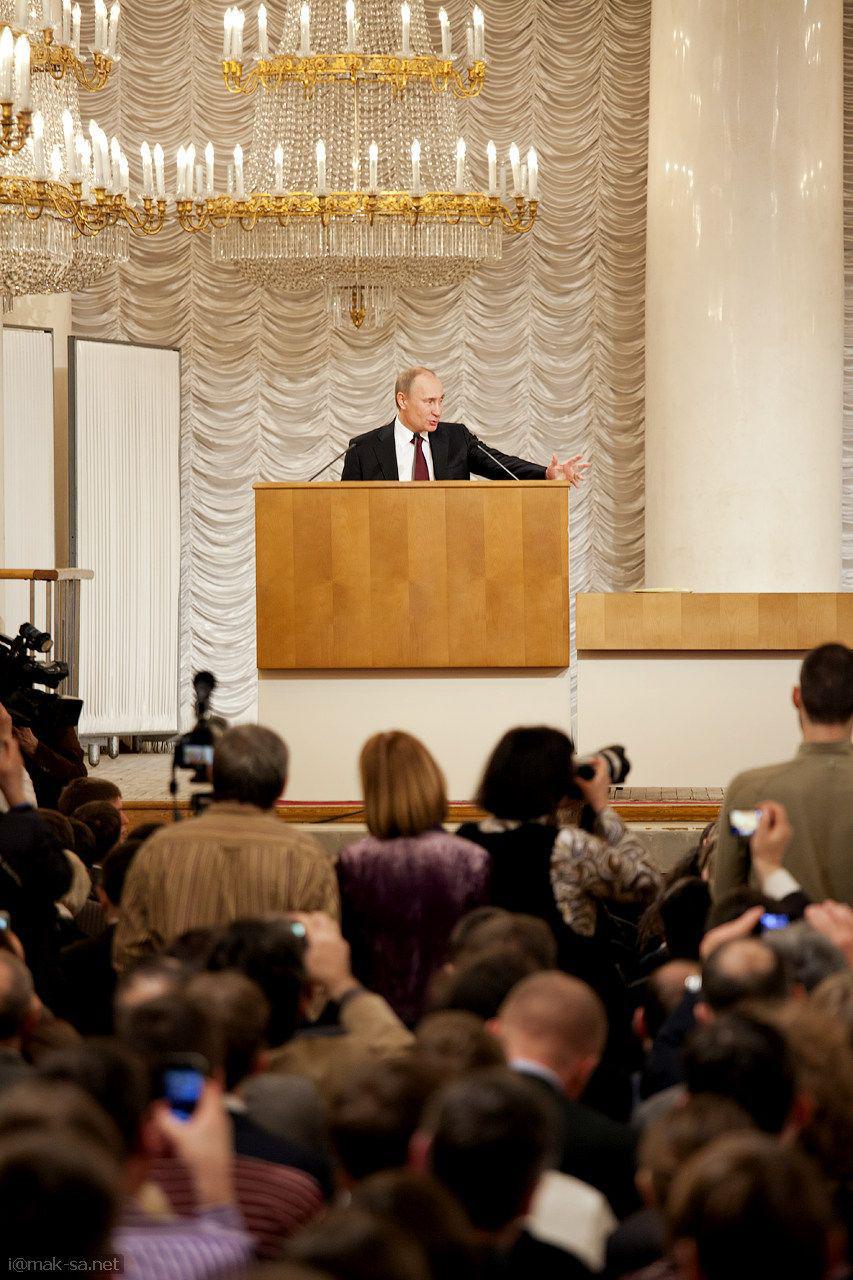
The President of Russia’s visit to the Pillar Hall of the House of Unions in 2013 [to the first congress of the All-Russian Parents’ Resistance movement – translator’s note] and his numerous statements in support of the so-called traditional family are, in a way, a prologue to discovering the monstrous novelty within the West. But, it is only a prologue! The protest movement against forced foster care, with all of its significance, is very narrow, and it cannot fully address this issue.
Thesis #24.
A full-fledged split between Russia and the West happened as a result of Crimea’s accession into Russia.
But conceptually and strategically, this split has yet to be outlined. In severing relations with the West, and in supporting Donbass without deploying the Russian army to Donbass, Putin yet again showed his characteristic willful nature, and his characteristic prudence. But, having sharply reoriented himself in terms of de facto relations with the West, Putin refused to conceptually, ideologically, and strategically outline this reorientation.
Russia is still “Mergerand”, built from “mergerin”, inhabited by “mergerists” breathing in “mergeria”. The anti-elite has retained its positions. In fact, since part of the quasi-elite has defected to its camp, the anti-elite has actually strengthened its positions. Neither a new ideology, nor a new concept have emerged.
Putin as the main obstacle on the path to an inferior merger…
Some sort (we will see what sort) of group of his supporters…
The ideology of merging at full-value, which exists by default, and to which Putin and this group conform, which has lost its viability as a result of the West’s rejection of this sort of merger…
The absence of a new ideology…
The colossal weakness of the counter-elite the majority of which is marginalized and incapable to even propose new projects based not on merging, but on something else… If the topic will become realizing such projects in practice, then the incapable nature of the majority of our counter-elite will become especially egregious…
The absence of any attempts to reformat relations between the “rejectors” (those who rejected Russia’s merging with the West on inferior terms) and the “acceptors” (those who accepted the inferior merger)… Indeed, for this it is not at all necessary to talk about crushing the “fifth column”… Especially not on the streets, behind the facade of supporting Putin. It is Putin himself who needs to reformat these relations, and not at all necessarily in the form of crushing it. But, one does not do this in the streets! And for now, it is entirely unclear whether this will be done, and in whose favor.
Russia’s involvement in the clearly antifascist process in Donbass, which is turning into a global antifascist process…
The undefined nature of the relationship not only with the proponents of an inferior merger between Russia and the West, but also with the fascists…
The absence of conceptual-strat
In a situation of such multidimensional uncertainty, combined with the obvious strengthening of the elite favoring an inferior merger of Russia with the West, it is difficult to speak of any full-fledged alliances between representatives of the elite who rejected the inferior merger of Russia and the West and those representatives of the counter-elite who never wanted such a merger to begin with.
However, rejecting such a dialogue is unacceptable. This is because one can only reject this dialogue by rejecting political action. Political action means involvement in reality. We are already involved in it both in Donbass and on the streets of Moscow. And, we cannot abandon this involvement. De facto, we are establishing positive relations with those who have rejected the dismemberment of our Motherland, and who have found themselves under vicious attack from the West. We are also, de facto, establishing confrontational relations with those forces which have accepted an inferior merger of Russia with the West.
Concluding these theses, which are meant to characterize the novelty and the tragedy of the current situation, I move from examining ideological and conceptual issues to a practical analysis, outside of which all of these issues could be perceived as imaginative speculations. This is because one cannot just talk about certain forces at large which aim to merge Russia into the West on inferior terms. One has to talk about what today is the deciding factor in ensuring such an inferior merger. It is painfully obvious that this deciding factor is the removal of Putin as the last obstacle on the path to merging Russia with the West on inferior terms.
This means one of two things. Either forces plotting such a coup really exist, and they have taken certain steps in order to prepare it. Or, these forces do not exist, and then all this talk about inferior mergers and mutacapitalism, about the struggle between capitalist classicism and this very mutacapitalism, about an alliance between capitalist classicism and forces representing the non-capitalist prospects of humanity’s development is devoid of any real practical significance.
(To be continued…)
Source (for copy): https://eu.eot.su/?p=9987
This is the translation of the second part of the second article (published in “Essence of Time” newspaper issue 118 on March 12, 2015) by Sergey Kurginyan on the new ongoing mutation of capitalism. Capitalism is destroying nation states in favor of a global state; it is destroying the family as an institution, and it is reformatting itself into something entirely anti-humanistic. In doing so, the new mutated capitalism, with its twin brothers, neofascism and radical Islamism, inevitably clashes with classic capitalism. Whose side should Communists be on in this battle? You will find the answer in this series of articles.

